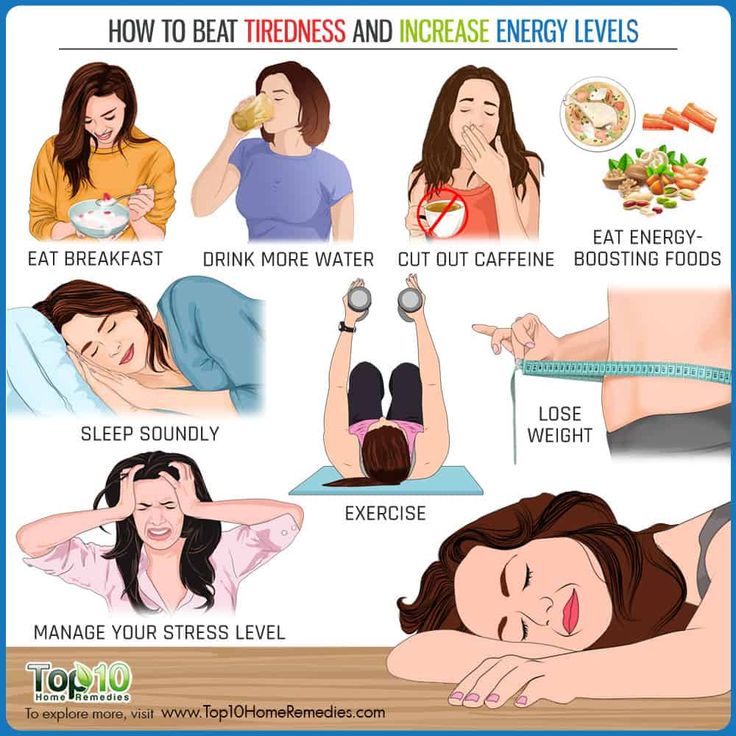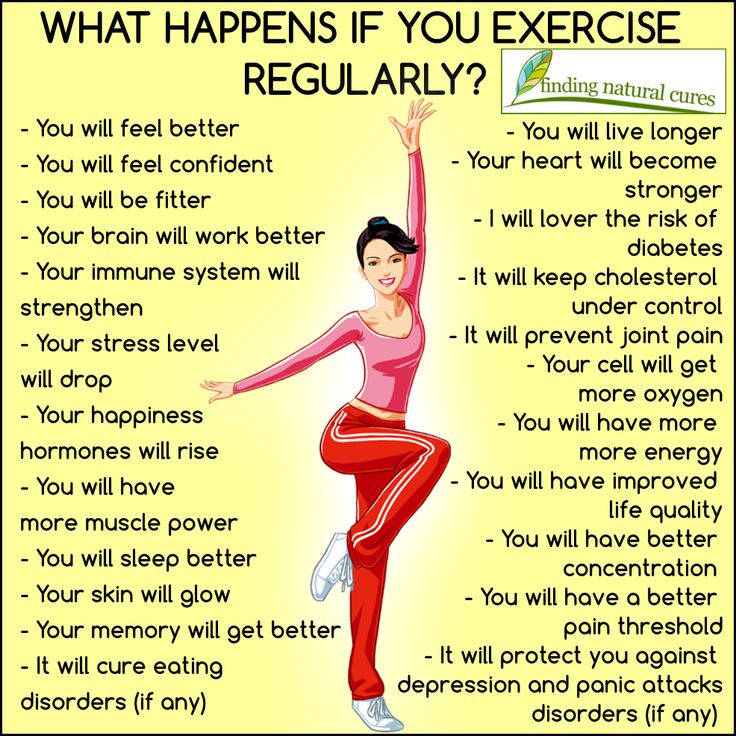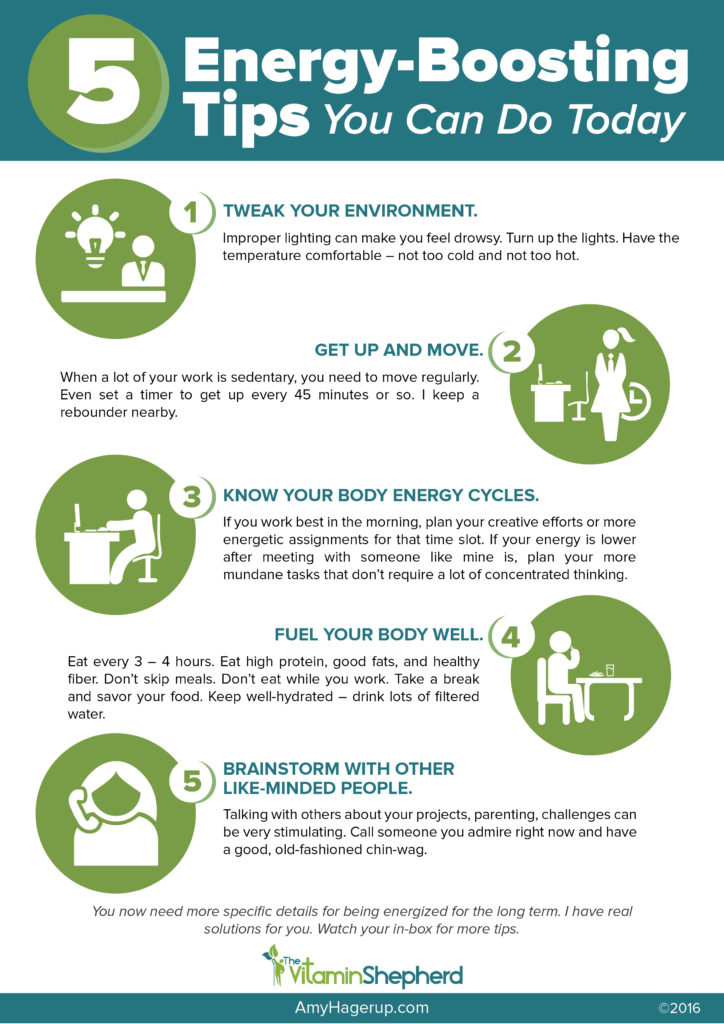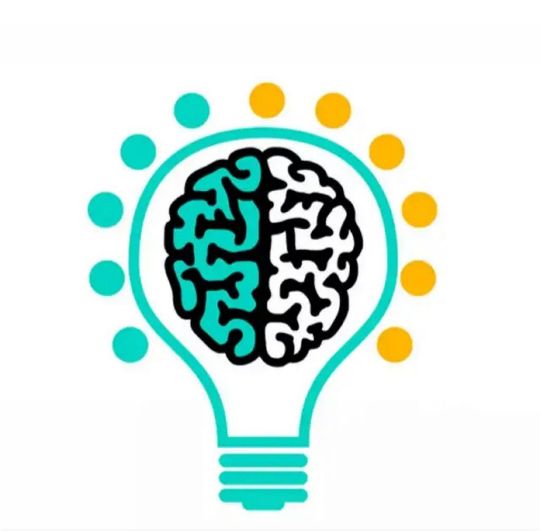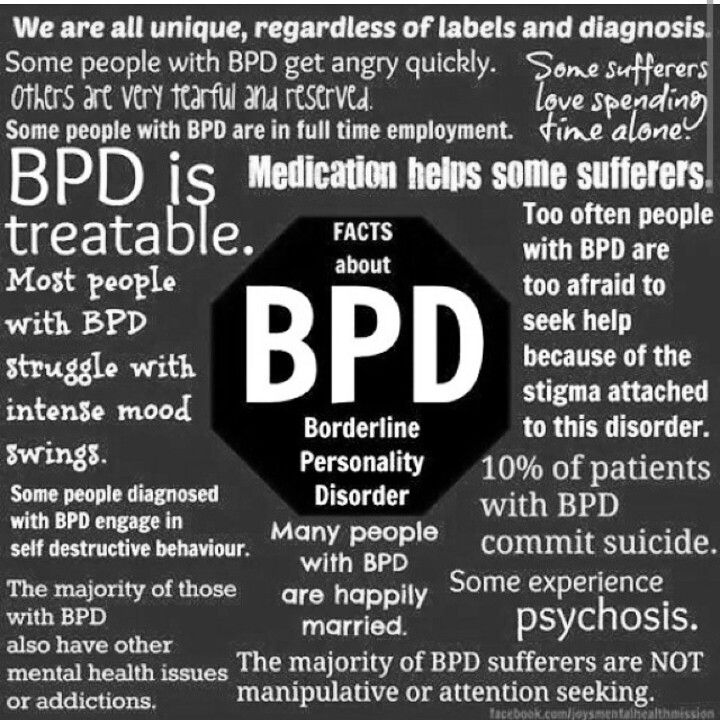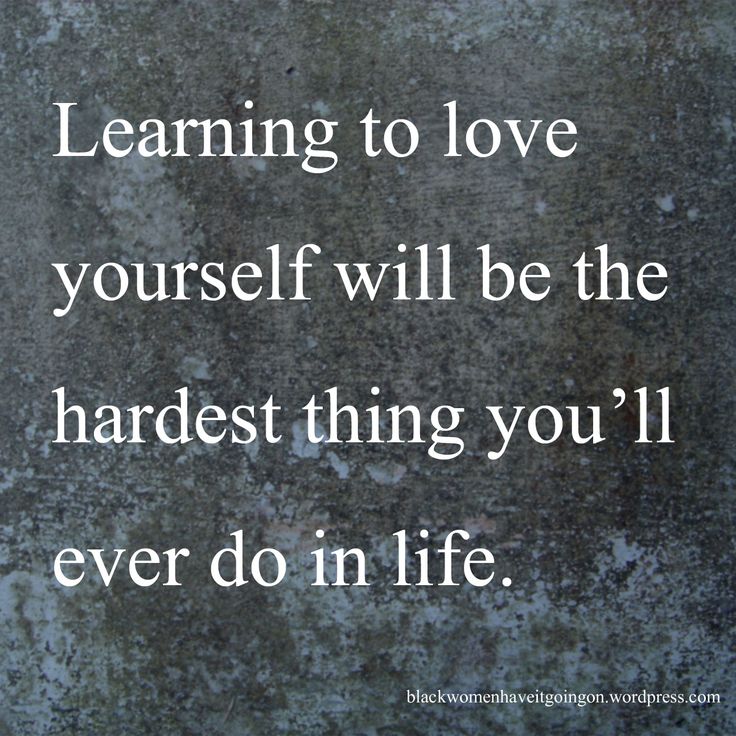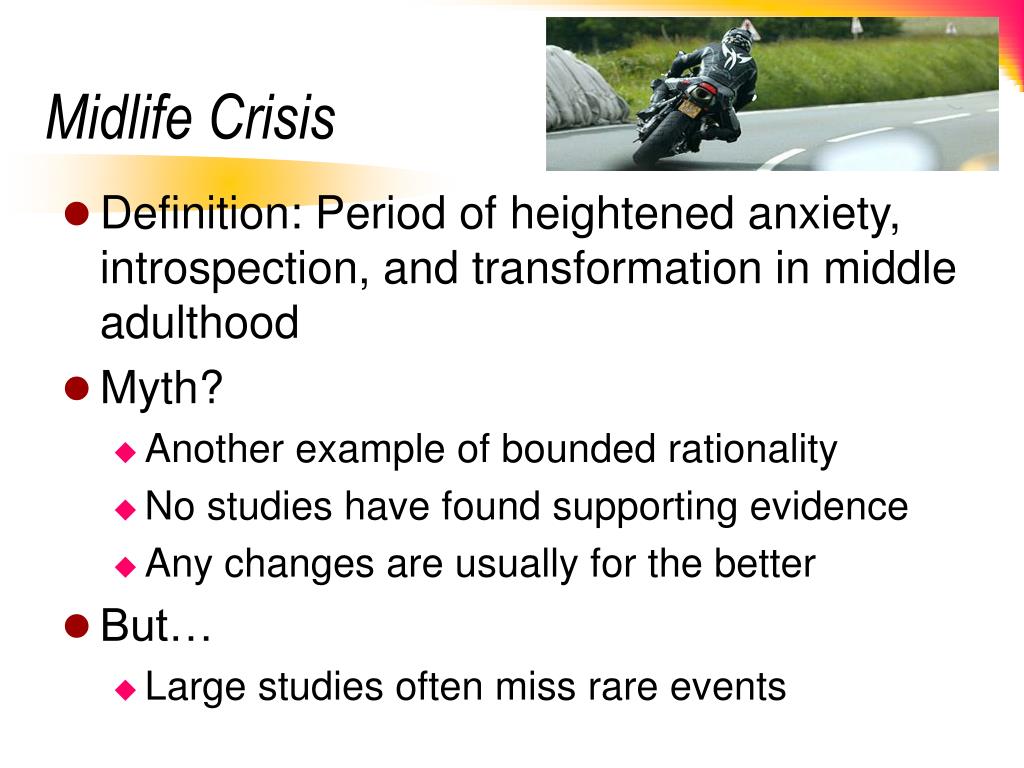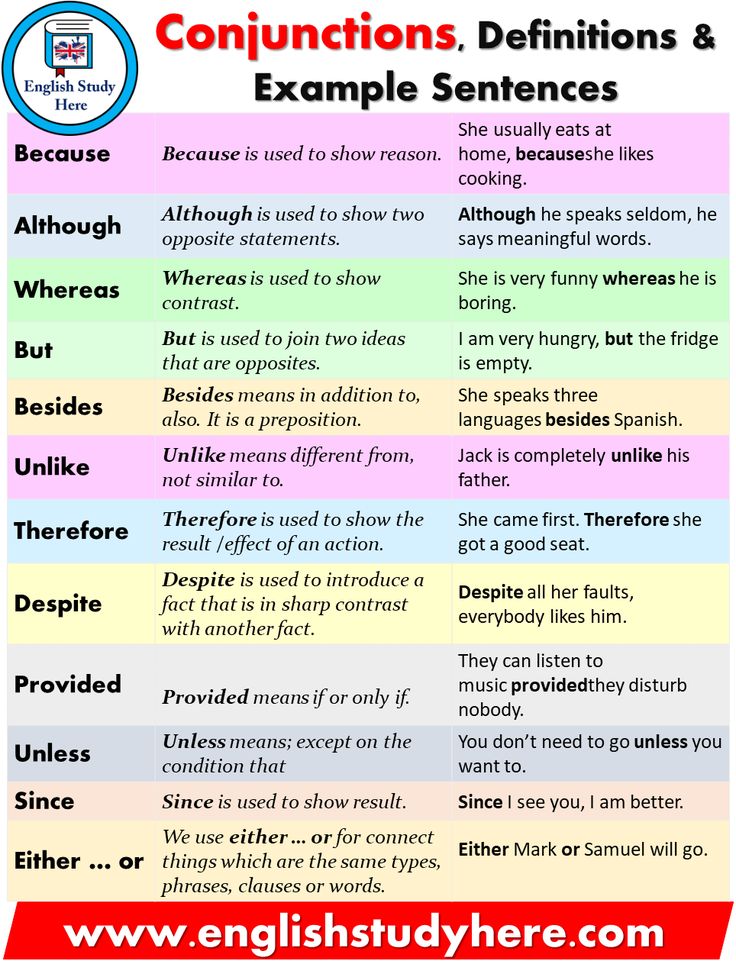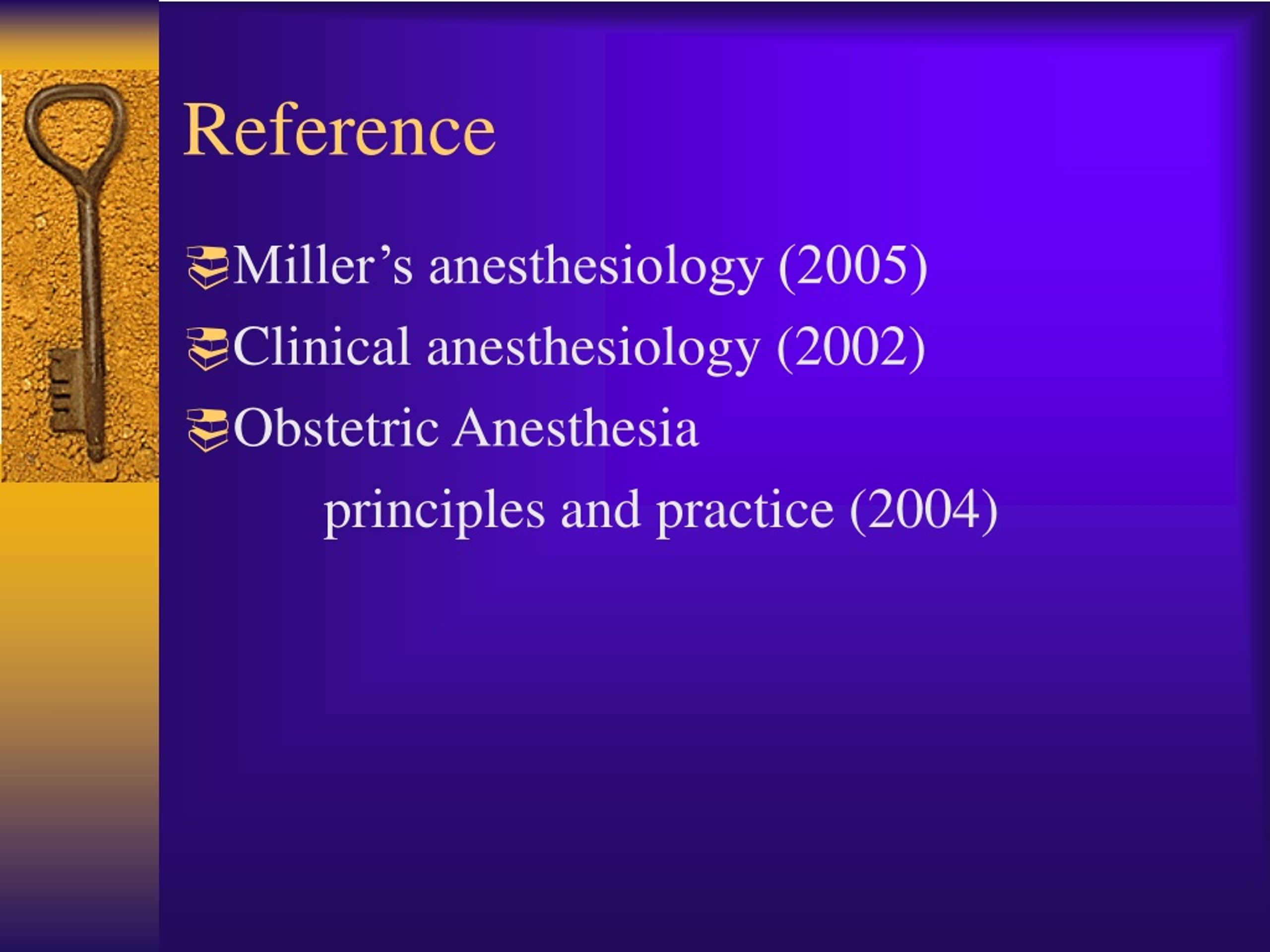How to feel better and have more energy
9 tips to boost your energy — naturally
Go to the store, and you'll see a multitude of vitamins, herbs, and other supplements touted as energy boosters. Some are even added to soft drinks and other foods. But there's little or no scientific evidence that energy boosters like ginseng, guarana, and chromium picolinate actually work. Thankfully, there are things you can do to enhance your own natural energy levels. Here are nine tips:
1. Control stress
Stress-induced emotions consume huge amounts of energy. Talking with a friend or relative, joining a support group, or seeing a psychotherapist can all help diffuse stress. Relaxation therapies like meditation, self-hypnosis, yoga, and tai chi are also effective tools for reducing stress.
2. Lighten your load
One of the main reasons for fatigue is overwork. Overwork can include professional, family, and social obligations. Try to streamline your list of "must-do" activities. Set your priorities in terms of the most important tasks. Pare down those that are less important. Consider asking for extra help at work, if necessary.
3. Exercise
Exercise almost guarantees that you'll sleep more soundly. It also gives your cells more energy to burn and circulates oxygen. And exercising can lead to higher brain dopamine levels, which helps elevate mood. When walking, pick up the pace periodically to get extra health benefits.
4. Avoid smoking
You know smoking threatens your health. But you may not know that smoking actually siphons off your energy by causing insomnia. The nicotine in tobacco is a stimulant, so it speeds the heart rate, raises blood pressure, and stimulates brain-wave activity associated with wakefulness, making it harder to fall asleep. And once you do fall asleep, its addictive power can kick in and awaken you with cravings.
5. Restrict your sleep
If you think you may be sleep-deprived, try getting less sleep.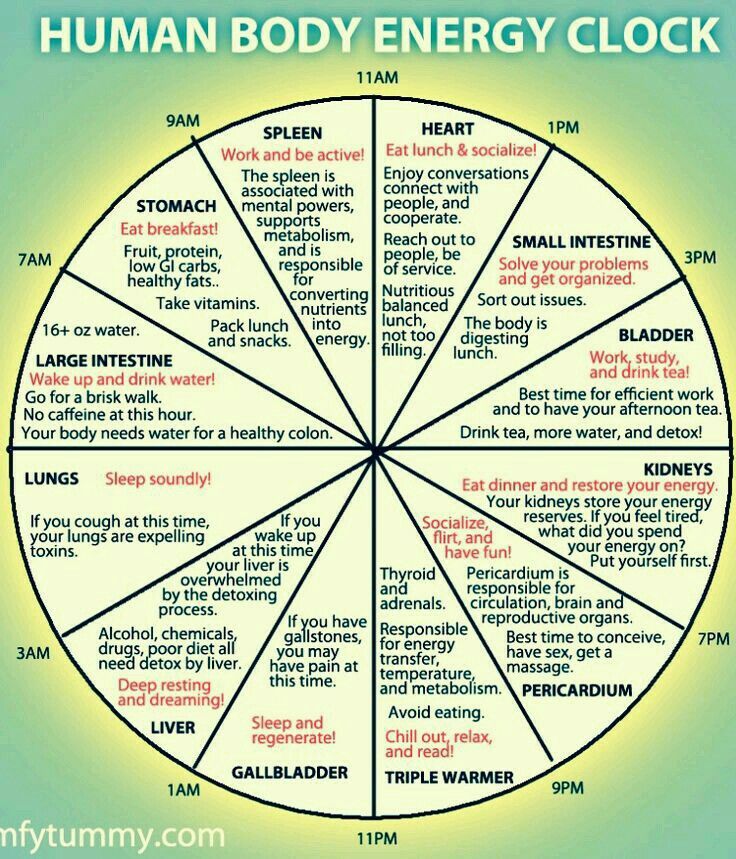 This advice may sound odd but determining how much sleep you actually need can reduce the time you spend in bed not sleeping. This process makes it easier to fall asleep and promotes more restful sleep in the long run. Here's how to do it:
This advice may sound odd but determining how much sleep you actually need can reduce the time you spend in bed not sleeping. This process makes it easier to fall asleep and promotes more restful sleep in the long run. Here's how to do it:
- Avoid napping during the day.
- The first night, go to bed later than normal and get just four hours of sleep.
- If you feel that you slept well during that four-hour period, add another 15–30 minutes of sleep the next night.
- As long as you're sleeping soundly the entire time you're in bed, slowly keep adding sleep on successive nights.
6. Eat for energy
Eating foods with a low glycemic index — whose sugars are absorbed slowly — may help you avoid the lag in energy that typically occurs after eating quickly absorbed sugars or refined starches. Foods with a low glycemic index include whole grains, high-fiber vegetables, nuts, and healthy oils such as olive oil. In general, high-carbohydrate foods have the highest glycemic indexes.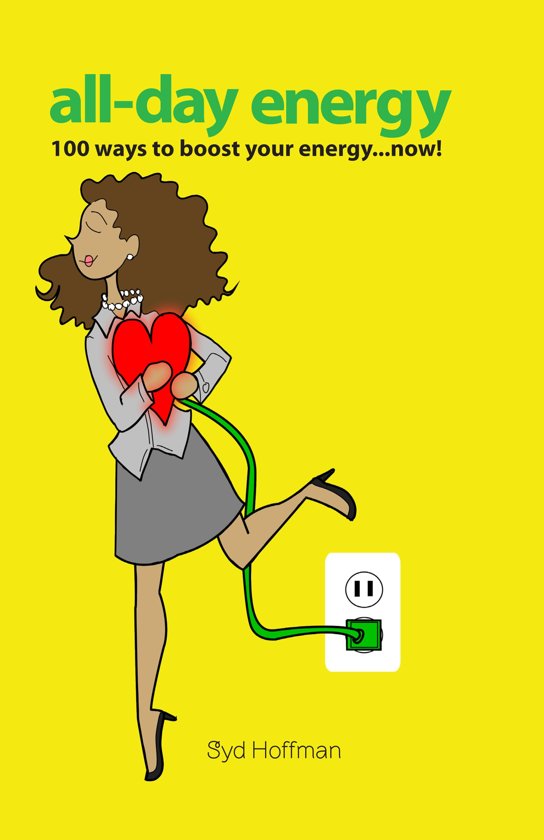 Proteins and fats have glycemic indexes that are close to zero.
Proteins and fats have glycemic indexes that are close to zero.
7. Use caffeine to your advantage
Caffeine does help increase alertness, so having a cup of coffee can help sharpen your mind. But to get the energizing effects of caffeine, you have to use it judiciously. It can cause insomnia, especially when consumed in large amounts or after 2 p.m.
8. Limit alcohol
One of the best hedges against the midafternoon slump is to avoid drinking alcohol at lunch. The sedative effect of alcohol is especially strong at midday. Similarly, avoid a five o'clock cocktail if you want to have energy in the evening. If you're going to drink, do so in moderation at a time when you don't mind having your energy wind down.
9. Drink water
What's the only nutrient that has been shown to enhance performance for all but the most demanding endurance activities? It's not some pricey sports drink. It's water. If your body is short of fluids, one of the first signs is a feeling of fatigue.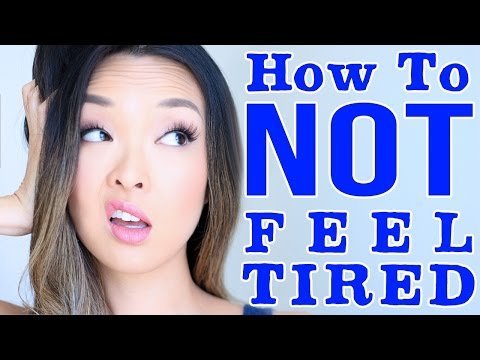
For more information on the many things you can do to increase your natural energy, order our Special Health Report, Boosting Your Energy.
Image: ©Gilaxia | GettyImages
Top 10 Ways to Boost Your Energy
Experts offer some fatigue-zapping tips that really work.
Written by Colette Bouchez
Everyone is familiar with all-out energy drain -- that exhausted day (or night) when no matter how enticing that new movie, fabulous shoe sale, or friendly barbecue, we just can't psych ourselves up to go.
What can be harder to recognize is a low-grade energy drain. In this case, you may not necessarily feel the classic signs of exhaustion -- like achy muscles or that all-over tired feeling. What you do experience is an increasing lack of get-up-and-go for many of the activities you used to love.
"You may also find it harder to concentrate on tasks, and, eventually, you can also find your patience grows short and your level of frustration rises, even when confronted with seemingly simple challenges," says New York University nutritionist Samantha Heller, MS, RD.
If this is starting to sound familiar, take heart. Energy zappers are all around us, some obvious, some hidden. The good news: There is a way around almost all of them.
To this end, we asked health experts to help compile this list of the top 10 energy boosters. Try one, two, or all 10, and you're bound to see your energy levels soar.
1. Increase Your Magnesium Intake
Eating a balanced diet can help ensure your vitamin and mineral needs are met. But if you still find yourself too pooped to pop, you could have a slight magnesium deficiency, Heller says.
"This mineral is needed for more than 300 biochemical reactions in the body, including breaking down glucose into energy," Heller says. "So when levels are even a little low, energy can drop."
In a study done at the Department of Agriculture's Human Nutrition Research Center in Grand Forks, ND., women with magnesium deficiencies had higher heart rates and required more oxygen to do physical tasks than they did after their magnesium levels were restored. In essence, their bodies were working harder which, over time, says Heller, can leave you feeling depleted.
In essence, their bodies were working harder which, over time, says Heller, can leave you feeling depleted.
The recommended daily intake of magnesium is around 300 milligrams for women and 350 milligrams for men. To make sure you're getting enough, Heller suggests:
- Add a handful of almonds, hazelnuts, or cashews to your daily diet.
- Eat more whole grains, particularly bran cereal.
- Eat more fish, especially halibut.
2. Walk Around the Block
While it may seem as if moving about when you feel exhausted is the quickest route to feeling more exhausted, the opposite is true. Experts say that increasing physical activity -- particularly walking -- increases energy.
"I like walking because it's accessible, easy to do, doesn't need training or equipment, and you can do it anywhere," says Rita Redberg, MD, science adviser to the American Heart Association's "Choose To Move" program.
In experiments done by Robert Thayer, PhD, at California State University, a brisk 10-minute walk not only increased energy, but the effects lasted up to 2 hours.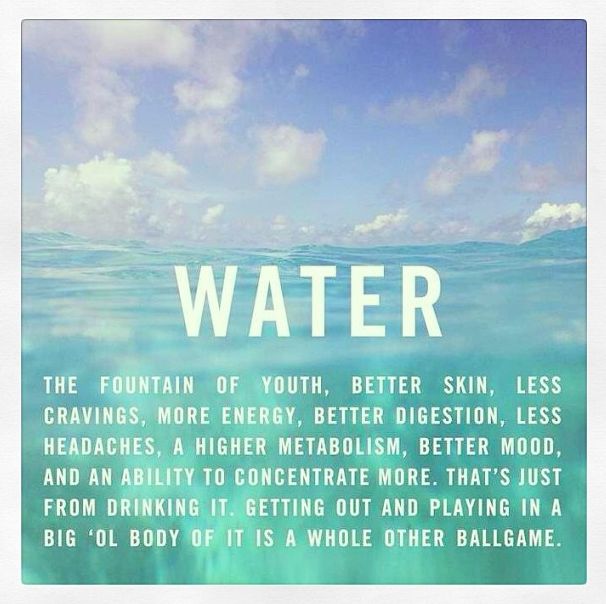 And when the daily 10-minute walks continued for 3 weeks, overall energy levels and mood were lifted.
And when the daily 10-minute walks continued for 3 weeks, overall energy levels and mood were lifted.
3. Take a Power Nap
Research has shown that both information overload and pushing our brains too hard can zap energy. But studies by the National Institutes of Mental Health found that a 60-minute "power nap" can not only reverse the mind-numbing effects of information overload, it may also help us to better retain what we have learned.
4. Don't Skip Breakfast -- or Any Other Meal
"Studies show that folks who eat breakfast report being in a better mood, and have more energy throughout the day," says Heller.
Her personal theory, she says, is that breaking the fast soon after rising supplies your body with a jolt of fuel that sets the tone for the whole day.
And studies published in the journal Nutritional Health found that missing any meal during the day led to an overall greater feeling of fatigue by day's end.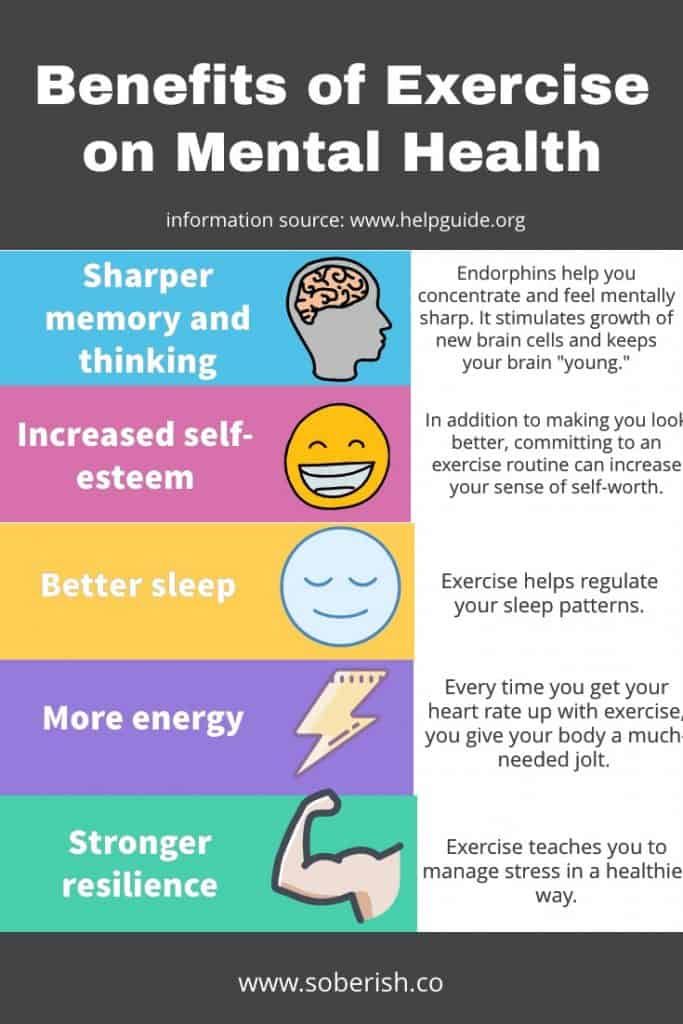
5. Reduce Stress and Deal With Anger
One of the biggest energy zappers is stress, says psychologist Paul Baard, PhD.
"Stress is the result of anxiety, and anxiety uses up a whole lot of our energy," says Baard, a sports psychologist at Fordham University in the Bronx, NY.
Like worry or fear, Baard says, stress can leave you mentally and physically exhausted -- even if you've spent the day in bed. More commonly, he says, low but chronic levels of stress erode energy levels, so over time, you find yourself doing less and feeling it more.
In much the same way, unexpressed anger can give a one-two punch to your energy level. The reason: "We're expending all our energy trying to contain our angry feelings, and that can be exhausting," Baard tells WebMD.
The good news, says Baard, is that we can counter these energy killers by programming more relaxation activities into our day. While for many folks, increasing exercise burns off the chemical effects of stress and anger, others find relief in quiet pursuits: listening to music, reading a steamy romance novel, or even just talking on the phone.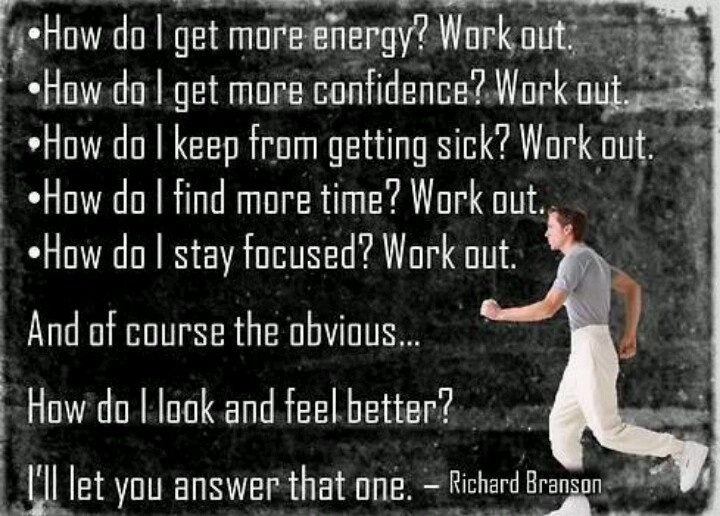
"Whatever is relaxing for you will reduce tension, and that will help increase energy," says Baard.
6. Drink More Water and Less Alcohol
You may already know that it's easy to confuse signals of hunger with thirst (we think we need food when we really need water). But did you know that thirst can also masquerade as fatigue?
"Sometimes, even slight dehydration can leave you feeling tired and lethargic," says nutritionist Keith Ayoob, EdD, RD, an associate professor at the Albert Einstein School of Medicine in New York and author of The Uncle Sam Diet.
The solution is simple: a tall, cool glass of water. This is particularly important to boost energy after exercise, when your body is likely to be craving fluids, Ayoob says. Conversely, Heller says, if you find yourself frequently fatigued even after a good night's sleep, try cutting down on alcohol during the evening hours.
'While alcohol initially helps you fall asleep, it also interferes with deep sleep, so you're not getting the rest you think you are -- even if you sleep a full 8 hours," she says.
By cutting down on alcohol before bedtime, you'll get a better night's rest, which is bound to result in more energy the next day.
7. Eat More Whole Grains and Less Sugar
The key here is keeping blood sugar balanced so energy is constant.
"When you're eating a sweet food, you get a spike in blood sugar, which gives you an initial burst of energy," Heller says. "But that's followed by a rapid drop in blood sugar, which in turn can leave you feeling very wiped out."
Do that enough times a day, she says, and by evening you're feeling exhausted.
"But, if you eat a lot of whole grains, which provide a slow and steady release of fuel, your energy will be consistent and balanced, so by day's end you'll feel less tired," says Heller.
Indeed, a study published recently in the American Journal of Clinical Nutrition found that eating more whole grains helped increase the body's sensitivity to insulin, allowing for that slow and steady release.
8. Have a Power Snack
Power snacking is more than just eating between meals, Ayoob says. He suggests a treat that combines protein, a little fat, and some fiber -- like peanut butter on a whole-wheat cracker, or some yogurt with a handful of nuts.
"The carbs offer a quick pick-me-up, the protein keeps your energy up, and the fat makes the energy last," he tells WebMD.
9. Make It a Latte
Pair a quick caffeine hit with the sustaining power of protein by having a low-fat latte instead of just a cup of coffee, advises Ayoob.
"All that milk turns your java into a protein drink, which provides not only extra energy, but extra calcium, which is good for your bones," he tells WebMD. Combine it with an ounce of almonds, he says, and the healthy fat will really tide you over -- while making you feel you're spoiling yourself silly!
10. Check Your Thyroid Function and Complete Blood Cell Count
It certainly won't provide an instant boost.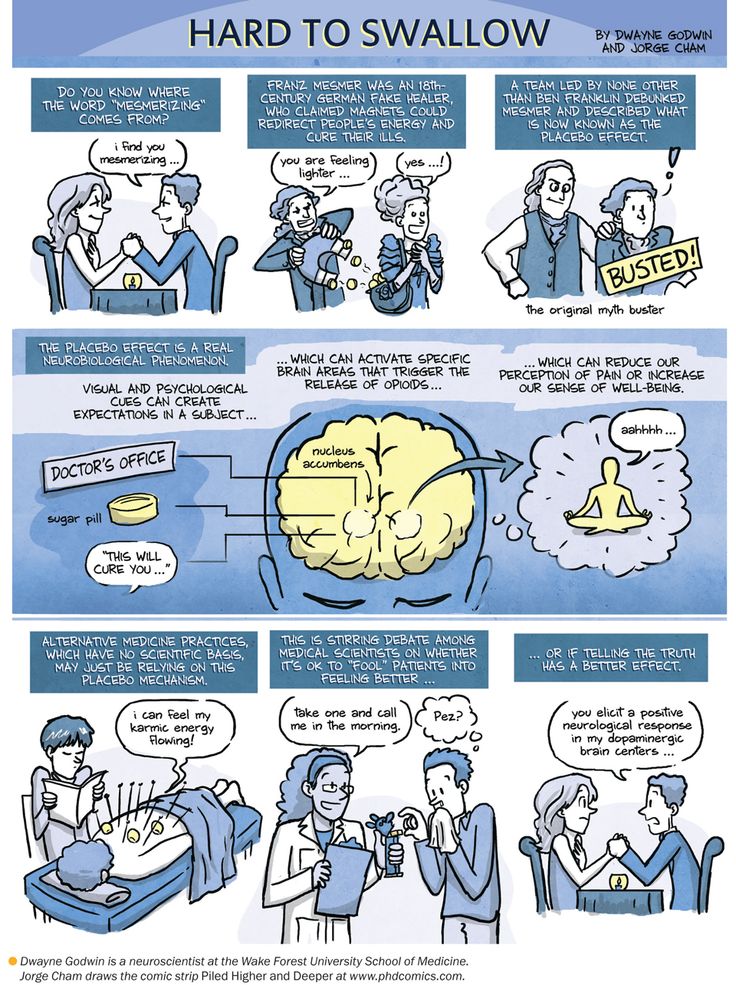 But if you're constantly low on energy -- especially if you feel sluggish even after a good night's rest -- Heller says you should talk to your doctor about a blood test for thyroid dysfunction as well as anemia.
But if you're constantly low on energy -- especially if you feel sluggish even after a good night's rest -- Heller says you should talk to your doctor about a blood test for thyroid dysfunction as well as anemia.
"Thyroid can be a particular problem for women -- it often develops after childbirth and frequently during the perimenopause -- but a simple blood test can verify if this is your problem," says Heller. If you're diagnosed with low thyroid function, medication can bring your body back up to speed.
In anemia, says Heller, a reduction in red blood cells can mean your body isn't getting the level of oxygen necessary to sustain energy. So, you tire easily.
"This can sometimes occur during a woman's reproductive years, particularly if she has a very heavy menstrual cycle," says Heller.
7 TIPS HOW TO BEAT FATIGUE
I HAVE NO POWER! The lack of energy characteristic of spring fatigue manifests itself as fatigue, drowsiness or apathy. In addition to those mentioned, there may also be depression and loss of motivation. Fatigue is a normal response of the body to lack of sleep, increased levels of stress, overload at work or school, lack of vitamins and minerals, and a sedentary lifestyle.
Fatigue is a normal response of the body to lack of sleep, increased levels of stress, overload at work or school, lack of vitamins and minerals, and a sedentary lifestyle.
1. Pay attention to vitamins and minerals
Vitamin D is deficient in autumn and winter, so supplements with this vitamin should be taken from October to March. We also lack other vitamins and minerals, which we get from fresh vegetables, berries and fruits in summer. Even if some of them remain until spring, the amount of nutrients in them decreases and becomes insufficient.
2. Call the sleep fairy for help
A good night's sleep reduces tiredness and sleepiness during the day. The average adult needs seven to nine hours of sleep. Emotional stress, chronic pain, allergies, alcohol, night sweats plus mobile devices, computer and TV right before bed reduce the quality of sleep. During the day, if possible, 10 minutes of naps will be enough for a good boost of energy. However, it must be borne in mind that it is impossible to doze off for more than 30 minutes, otherwise it will be difficult to fall asleep in the evening.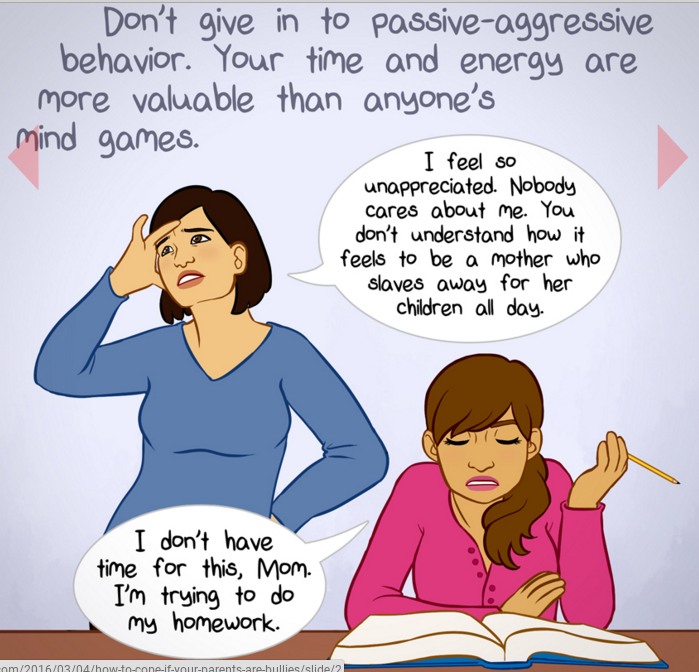
3. Keep moving
You rarely feel like exercising when you're tired, but there are many studies that show that physical activity increases energy levels and has always been strongly associated with vitality and overall quality of life. When exercising, the work of the heart, lungs, muscles improves, which in general gives more energy for any activity. Interestingly, yoga is a particularly effective way to get energy. In a study conducted by the British, volunteers after six weeks of attending yoga once a week felt more energy, mental activity improved, and self-esteem rose.
4. Drink more fluids
Dehydration, or insufficient fluid intake, weakens a person's performance, reduces vigor and impairs the ability to concentrate. An adult person needs to drink 1.5-2 liters of water per day, given that coffee, tea, alcohol contribute to the removal of water from the body, so the more these drinks are consumed, the more water you need to drink per day.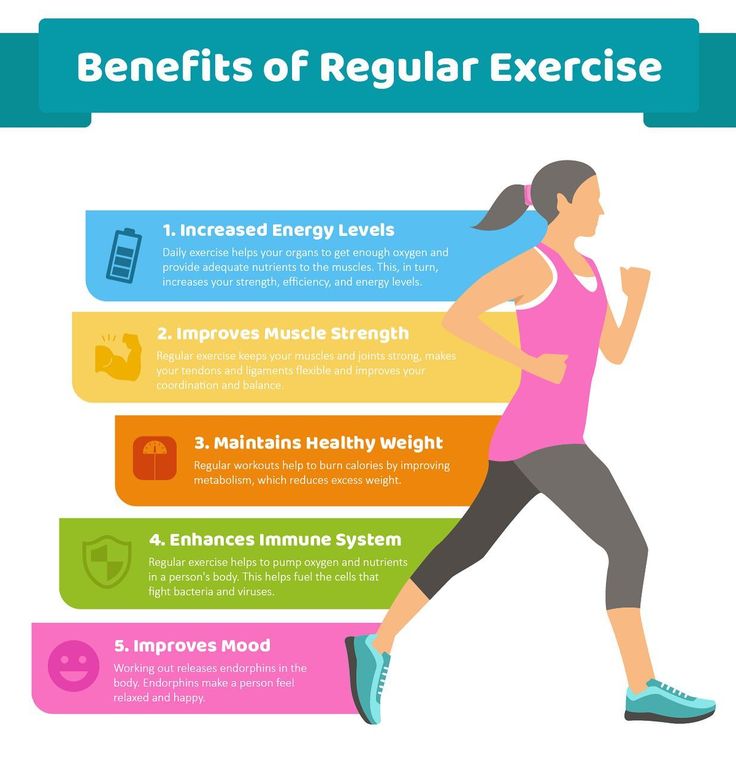
5. Remember Fats
Omega-3 fatty acids improve concentration and may reduce fatigue. Study participants in Italy consumed one fish oil capsule daily for 21 consecutive days. As a result, they were observed to react more quickly during the responses, and the participants themselves admitted that they felt more energetic.
6. Watch what you put in your stomach
Small, frequent meals help maintain an even blood sugar level, which provides the body with the energy it needs throughout the day. It is recommended to eat five to six times a day.
7. Ask for advice at the pharmacy
Various vitamin and mineral complexes are available in pharmacies, but those containing coenzyme Q10, ginseng and amino acids will provide additional energy. Coenzyme Q10 provides cells with the energy necessary for vital processes. In the body, coenzyme Q10 is synthesized in the liver, but after the age of 25 its production decreases, so it can be taken with dietary supplements. Ginseng is a medicinal plant with a pronounced tonic effect, and proteins are synthesized from amino acids, which, in turn, are the main “building material” in the human body.
Ginseng is a medicinal plant with a pronounced tonic effect, and proteins are synthesized from amino acids, which, in turn, are the main “building material” in the human body.
IF FATIGUE CONTINUES
Consult your physician, as chronic fatigue may also indicate a more serious condition, such as diabetes, heart or thyroid disease, anemia, sleep apnea. Medications can also cause fatigue, such as various blood pressure medications, antihistamines, and diuretics. Talking to your doctor can help you find the causes of chronic fatigue.
Author: NELLIA MAJORE
JOURNAL SECRETS OF HEALTH magazine-guide about health №23 March 2017
8 unbeaten ways to recharge your batteries
June 10 Productivity
Active rest, the right goals and other sources of strength in case the internal batteries are completely dead.
Share
0 You can listen to the article. If it's more convenient for you, turn on the podcast.
1. Remember the three axioms
Sorry, we promised new and unhackneyed ways, but first we have to remind you of something banal. You already know that you need to sleep well, eat and exercise. We will not decipher, anyway, few people follow this. Let's say a few words about the introduction of healthy lifestyle into the daily routine.
How to get energized through exercise
Work out during your lunch break or at least go for a walk. In 2004, researchers from the University of Leeds found Exercise may boost performance on the job / Jumpstart by WebMD that employees who attend the corporate gym show better results and cope with stress more easily. In addition, they like work more, they experience less stress, they do not feel tired in the afternoon, despite the energy expended during training.
How to get more sleep
Rearrange your alarm clock. Let it ring not in the morning, when it's time to get up, but in the evening, when it's time to go to bed.
As J. Durant says. The Paleo Manifesto: Ancient Wisdom for Lifelong Health John Duran, in The Paleo Manifesto, has a very useful technique for setting an alarm for the evening to remind yourself it's time for bed. The signal should sound one hour before lights out. After a reminder, you need to complete all the work, turn off the TV and extra lights, gradually get ready for bed.
How to switch to a healthy diet
Ask yourself: “What would Batman eat?” This advice is given by B. Wansink, M. Shimizu, G. Camps. What would Batman eat? Priming children to make healthier fast food choices / Pediatric Obesity Cornell University professor Brian Wansink.
When deciding whether or not to eat dessert, consider what your childhood idol would have done. If it doesn't work the first time, ask yourself the question three times. It will be easier to make a sound decision.
Boring and obvious sorted out. To get energy at the right time, there is no need to mock your body.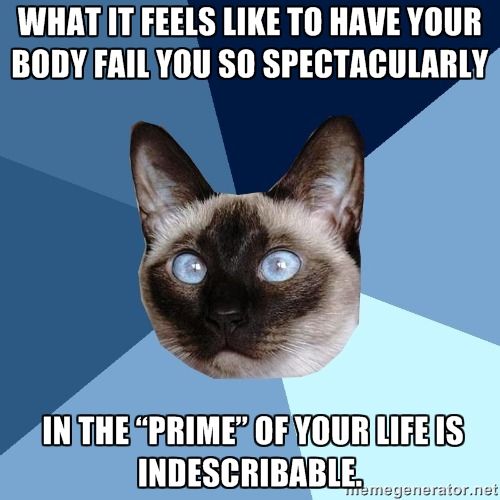 It's better to change the schedule.
It's better to change the schedule.
2. Find out when you are cooler
Do you know how much the change of time zones affects a person? When, for example, a football team crosses three time zones to play, its chances of winning are halved, even if the opponent is weaker.
But we are not talking about athletes now. It’s just that if you are a pronounced owl, then it’s stupid to plan important tasks for eight in the morning.
Pay attention to your circadian rhythms and stay in the black: Athletes win and break records when they adjust race times to match their internal clocks.
One of the studies highlighted in David Randall's book "The Science of Sleep" showed that records in running, powerlifting, swimming were more often set by athletes whose competition schedule coincided with the second period of daily activity. In the long jump, for example, athletes at the peak of energy showed a result that was 4% better than average.
Did you set up synchronization with the internal clock? Super.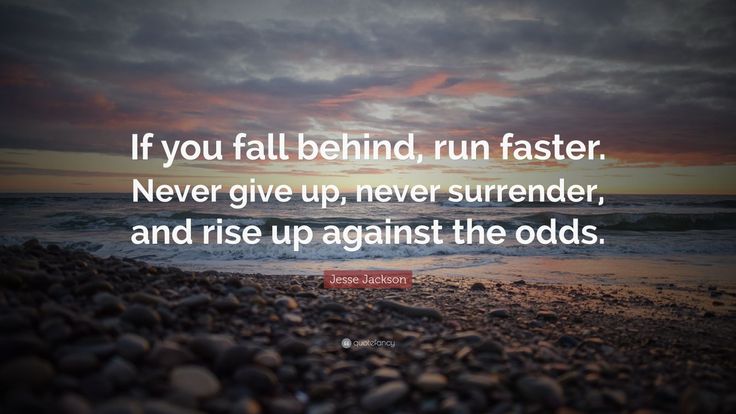 Now we are learning to let go.
Now we are learning to let go.
3. Set the right goals and don't tell anyone about them
Maybe you have relative goals: "I want to be better than Sasha." Or maybe objective: “I want to get the highest score on testing.”
But if you want to increase the level of energy, then one goal should remain in your head: to become better.
Research by American psychologist Heidi Grant Halvorson shows that a focus on improvement increases the desire to work. We work with interest and passion when we think about progress, and not just about the task. Interest does not make you work with all your might, but fills you with energy.
It's not that hard. Just think about how to make everything you do better.
And now the second part: keep quiet. Research has shown H. B. Kappes, G. Oettingen. Positive fantasies about idealized futures sap energy / Journal of Experimental Social Psychology, that you can't talk about your goals if you don't want to spill the energy needed to achieve them. Scientists have concluded that pleasant fantasies do not come true because they do not provide energy to move towards the desired future.
Scientists have concluded that pleasant fantasies do not come true because they do not provide energy to move towards the desired future.
So, we set ourselves up for the best and remembered that happiness loves silence. Where to get energy?
4. Be optimistic
Fully armed soldiers need to march 40 km. But some were told that the distance was 30 km. Others say that they will have to walk 60 km.
After completing the forced march, the researchers measured the levels of stress hormones in the blood of both groups. What happened? It turned out that stress does not correspond to reality, but to expectations.
What do we conclude? Everyone gets what they expect.
The brain does not like to force the body to waste resources until it sees a real chance to win. Physical strength is not available as long as there is no faith in success, because there is no worse situation for the human body than to waste all resources and fail. At the moment when confidence appears, the gates open through which the flow of energy flows.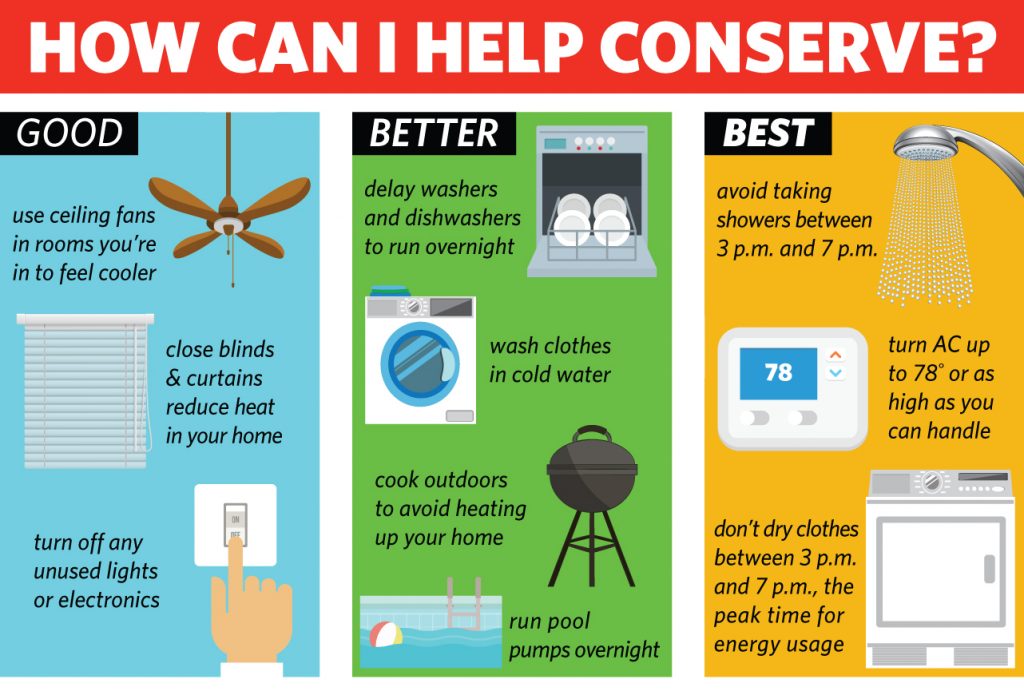 Hope or despair is what we program ourselves for, say S. Breznitz, C. Hemingway. Maximum brainpower: Challenging the brain for health and wisdom authors of the book Maximum Brain Power.
Hope or despair is what we program ourselves for, say S. Breznitz, C. Hemingway. Maximum brainpower: Challenging the brain for health and wisdom authors of the book Maximum Brain Power.
Optimists have more energy. Pessimists have more stress. Everything depends not on objective circumstances, but on the point of view on them.
Charged with positive? Good. But maybe it's time to redo a bunch of things? What is needed for this?
5. Do what you know how to do
What projects are you involved in at work? What household duties do you have? If you stick to what you're good at, you'll see the difference.
Research has shown that using strengths at work makes people happier. And at the same time it increases energy levels.
The longer a person works on what he can do, the more cheerful, happier he is, and the more he respects himself. Using your strengths makes you smile, learn interesting things.
According to Gallup's When Americans use their strengths more, they stress less / Gallup, positive assessments of the past day depending on the number of hours spent on favorite activities, as a percentage of the number of respondents, are distributed as follows:
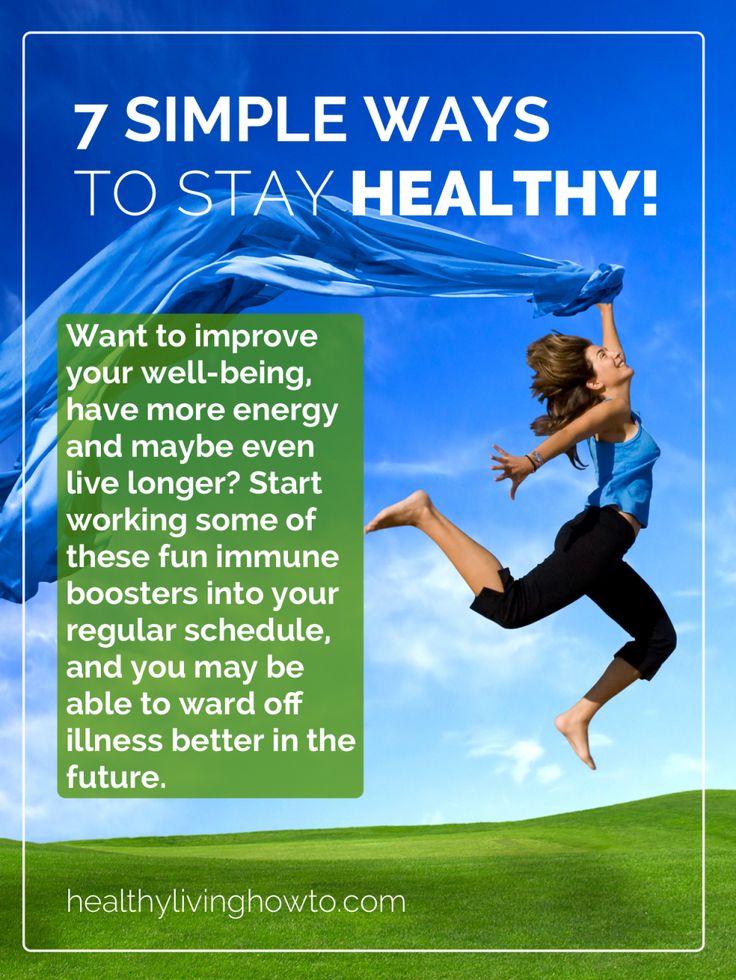 But focusing on only one process at times increases motivation.
But focusing on only one process at times increases motivation.  And when your head is porridge from fatigue, rely on intuition.
And when your head is porridge from fatigue, rely on intuition. 